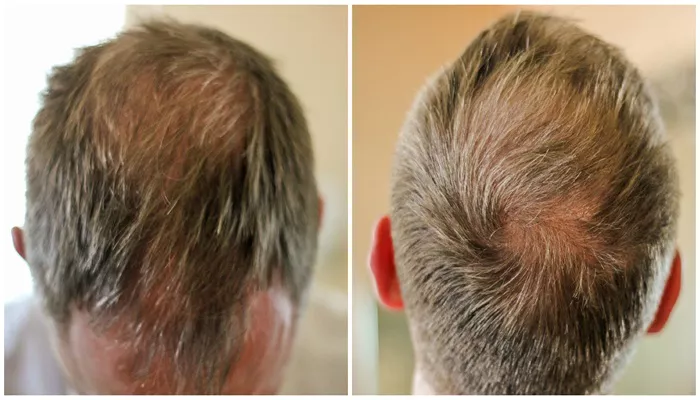Hair thinning is a common concern that affects millions of people worldwide, regardless of age or gender. Whether due to genetics, aging, hormonal changes, stress, or nutritional deficiencies, losing hair density can be distressing. Many people wonder: Can hair actually thicken after thinning? The answer is not a simple yes or no—it depends on the underlying cause, the stage of hair loss, and the steps taken to address it.
In this comprehensive guide, we’ll explore the science behind hair thinning, the factors that influence hair regrowth, and the most effective strategies to potentially restore thickness to your hair.
Understanding the Hair Growth Cycle
Before diving into whether hair can thicken after thinning, it’s essential to understand how hair grows. Hair follicles go through a continuous cycle with three main phases:
Anagen (Growth Phase): This is the active growth stage, lasting anywhere from two to seven years. The longer this phase, the longer your hair can grow.
Catagen (Transition Phase): A short, two-week phase where hair growth slows, and the follicle shrinks.
Telogen (Resting Phase): Lasting about three months, the hair remains in the follicle but eventually sheds to make way for new growth.
At any given time, about 85-90% of your hair is in the anagen phase, while the rest is either transitioning or shedding. When this cycle is disrupted—due to factors like genetics, illness, or stress—hair thinning can occur.
Causes of Hair Thinning
Hair thinning can result from various factors, and identifying the root cause is crucial for determining whether thickening is possible. Some common causes include:
Androgenetic Alopecia (Male/Female Pattern Baldness)
This is the most common cause of hair loss, affecting both men and women. It’s driven by genetics and hormones (specifically dihydrotestosterone, or DHT), which shrink hair follicles over time, leading to finer, shorter hairs until growth stops entirely.
Telogen Effluvium
A temporary form of hair shedding triggered by stress, illness, surgery, childbirth, or drastic weight loss. Hair typically regrows once the underlying issue is resolved.
Nutritional Deficiencies
Lack of essential nutrients—such as iron, zinc, biotin, and vitamins D and B12—can weaken hair and lead to thinning.
Hormonal Imbalances
Conditions like thyroid disorders, polycystic ovary syndrome (PCOS), and menopause can disrupt hair growth cycles.
Scalp Conditions
Issues like seborrheic dermatitis, psoriasis, or fungal infections can damage follicles and impede hair growth.
Aging
As we age, hair follicles naturally produce thinner, weaker strands, and some may stop producing hair altogether.
Can Thinning Hair Become Thick Again?
The possibility of hair thickening after thinning depends on several factors:
Reversible vs. Irreversible Hair Loss
- Reversible Thinning: Conditions like telogen effluvium, nutritional deficiencies, and some hormonal imbalances can often be corrected, allowing hair to regain thickness.
- Irreversible Thinning: In cases of advanced androgenetic alopecia where follicles have miniaturized and stopped producing hair, regrowth is unlikely without medical intervention.
Early Intervention Matters
The sooner you address hair thinning, the better your chances of recovery. Once follicles are dormant or scarred, reactivating them becomes much harder.
Effective Ways to Promote Hair Thickening
If your hair thinning is due to a reversible cause, several strategies may help restore thickness:
Medical Treatments
- Minoxidil (Rogaine): An FDA-approved topical treatment that stimulates hair follicles and prolongs the anagen phase.
- Finasteride (Propecia): A prescription pill for men that blocks DHT, slowing hair loss and promoting regrowth.
- Low-Level Laser Therapy (LLLT): Devices like laser combs or helmets may improve follicle function and density.
Nutritional Support
- Iron & Ferritin: Low iron levels are linked to hair loss, especially in women. Supplements may help if deficient.
- Biotin & B Vitamins: Essential for keratin production, though excessive biotin without deficiency may not help.
- Omega-3s & Antioxidants: Support scalp health and reduce inflammation.
Lifestyle Changes
- Reduce Stress: Chronic stress elevates cortisol, which can trigger hair shedding. Meditation, exercise, and proper sleep help.
- Gentle Hair Care: Avoid tight hairstyles, excessive heat, and harsh chemicals that damage follicles.
- Scalp Massage: Improves blood circulation, potentially encouraging thicker hair growth.
Natural Remedies (Limited Evidence)
- Rosemary Oil: Some studies suggest it may be as effective as minoxidil for certain types of hair loss.
- Peppermint Oil: Could promote blood flow to follicles.
- Aloe Vera & Onion Juice: Anecdotal reports suggest benefits, but scientific backing is weak.
When to See a Doctor
If you notice sudden or severe hair thinning, consult a dermatologist or trichologist. They can diagnose the cause through blood tests, scalp biopsies, or trichoscopy and recommend targeted treatments.
Conclusion
While not all cases of hair thinning can be reversed, many people can achieve thicker hair by addressing the underlying cause early. Medical treatments, proper nutrition, and lifestyle adjustments play key roles in hair restoration. If you’re concerned about thinning hair, don’t wait—early action gives you the best chance for recovery.
Hair may not always return to its original density, but with the right approach, improvement is possible. Patience and consistency are crucial, as hair growth is a slow process. Whether through medical therapies, dietary changes, or improved hair care habits, taking proactive steps can make a noticeable difference in your hair’s thickness and overall health.
Related topics:
Why Am I Losing So Much Hair as a Teenager?
Excessive Hair Loss: Causes, Diagnosis, and Treatment
Why Am I Losing So Much Hair After Surgery?


